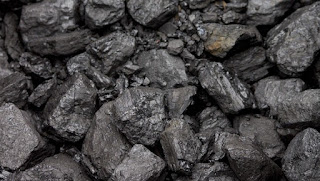Leaders need to start addressing coal, oil and gas production as well as greenhouse gas emissions to prevent dangerous climate change.
This week, negotiators are gathered in Germany for the annual UN climate change conference. If previous meetings are any indication, the negotiating halls will be strangely silent on one obvious contributor to climate change: fossil fuel production.
Oil, gas and coal production have long been ignored in global climate talks, largely to avoid conflict between fossil fuel producing nations and the rest of the world. In fact, the text of the Paris Agreement on climate change doesn’t include the phrase “fossil fuels.”
This silence can’t continue forever. Evidence shows that we need to slow the development of fossil fuel resources to meet the Agreement’s goals. It’s time for world leaders – through the UN Framework Convention on Climate Change (UNFCCC) – to admit the problem and work on the solution.
Now is an opportune moment. UNFCCC negotiators are developing the “rulebook” for delivering the Paris Agreement. If these hard-fought rules for implementing Paris do not consider fossil fuel production now, it is unlikely that countries will revise them any time soon. By that time, it could be too late – an orderly, managed decline in fossil fuels may no longer be possible while still keeping warming below 2C.
But we have options. While the Paris Agreement doesn’t mention fossil fuels by name, it does provide many opportunities to phase-down fossil fuel production – if climate negotiators use the options at their disposal.
In a new SEI paper, we detail these opportunities. Some are remarkably simple: countries, for example, could add targets for phasing down fossil fuel production to the commitments they have already made under the Paris Agreement. Currently, those commitments – called nationally determined contributions (NDCs) – only outline countries’ goals to reduce greenhouse gas emissions.
This would provide an important signal to other nations that a transition away from fossil fuels is underway. Through this and other unilateral actions – such as limiting new fossil fuel infrastructure and removing subsidies – countries can act now without waiting for international agreement.
Read more at It Is Time for the UN Climate Process to Tackle Fossil Fuels

No comments:
Post a Comment